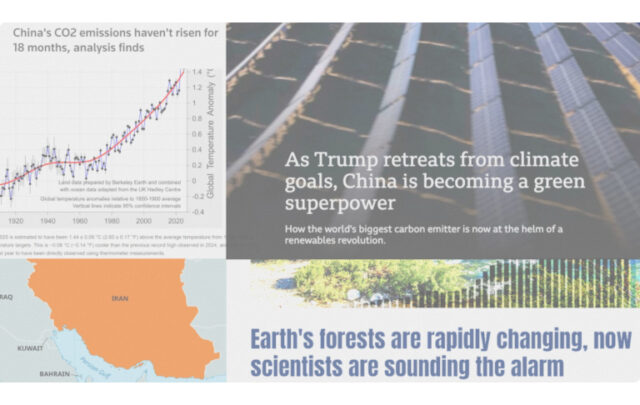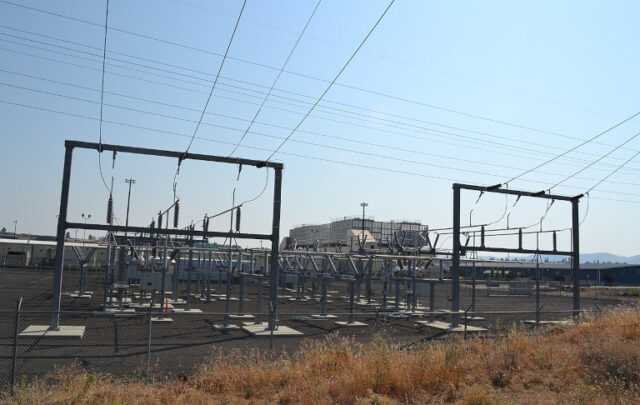John’s ongoing peak oil odyssey
I expect that just about everyone who knows more than a little bit about Global Peak Oil is familiar in one way or another with Richard Heinberg’s book of three years ago, The Party’s Over. And agrees with it. And admires it. I am now, however, and with the greatest respect for Heinberg’s book, going to emphasize that the party’s not over, not quite yet — that the party is in fact peaking — that Global Peak Oil is here, and it is the high tide of the ultimate consumerist blow-out. Ultimate does, of course, mean final, and after Peak the days of reckoning do of course ensue — après ca, le deluge, totally — but here in the USA things are whizzing along faster than they ever have, and I’m whizzing right along with them.
So naturally enough, I began my Peak Oil Odyssey by driving around the USA, listening to white tribal music and visiting a variety of eco-villages and intentional communities (with an Earth First! Action thrown in for good measure), powered by overpriced vegan food and fossil fuels – all this in a Detroit-made Chevrolet. What better response to the imminent collapse of two and a half centuries of exponential economic growth in the First World than to go on an extended, energy-intensive vacation?
Certainly the story of the summer of 2006 was one of hiatus, of collapse postponed – of the party prolonged. Instead of rising past eighty dollars a barrel, oil almost fell under sixty. The war between Hezbollah and Israel did not spread into Syria or Iran, as many of us had feared back in July. Despite record high water temperatures in the Gulf of Mexico, no category five hurricanes formed.
Furthermore, and in my own defense, let me point out that, even as I vacationed, I gave my car away to a friend whom I met on The Farm in Tennessee – at the Eco-Village Training Center there — and am right now, via Amtrak, on the Left Coast of the USA, visiting a variety of places where people seem to be working towards the sustainable and the permanent. These include the Regenerative Design Institute in Marin County, California and the Permaculture Army in Berkeley, where Bill Mollison’s textbook on the topic is read as a sort of bible.
Furthermore, as I write this, somewhere in rural Oregon, at the home of the author of the Oilempire.us and Permatopia.com websites, I note that Heinberg is himself on an extended working vacation right now, touring Australia with David Holmgren, the co-founder (with Mollison) of the Permaculture movement. And that Jim Kunstler has just returned from New Zealand, where he was speaking of how to deal with the Long Emergency.
So I can say that, even though I still can whiz around in comfort, I am on message, and the first half of the message is this: as Global Peak Oil and its fraternal twin, Global Climate Change, bear down upon us, austerity – a permanent austerity — is right around the corner. And the second half of the message therefore revolves around the fateful question of how we prepare ourselves, and it is only too easily answered with the intellect: we must live a hundred times more slowly, a hundred times more gently and simply. In the face of permanent austerity, we must find a graceful way to — let’s use Heinberg’s word — powerdown. For our only other option is catastrophe.
We as a society are, of course, not making any such preparations — just the opposite. And, more to the point, even those of us who hope for the possibility of a non-catastrophic powerdown are, by and large, lethargic. For what is easy for the intellect is not so easy for the person who claims to be its owner. Good, clear logic isn’t really all that persuasive. It takes a harsh and sudden jolt of fear to set the body in motion, to ignite the bio-chemical spark plugs in our souls.
And so we come to the topic of die-off.
For when we study Global Peak Oil, we learn quickly that an unprecedented economic discontinuity – let’s call it PetroCollapse — seems imminent as supplies of fossil fuels fall forever shorter and shorter of demand. And when we study Global Climate Change, we learn that an unprecedented environmental discontinuity — something hideously in accord with the vengeful justice of the Gaia Hypothesis — is now all but unavoidable as more and more ancient carbon is un-earthed, and burned, and re-deposited into the atmosphere. We study these discontinuities and learn of worst-case scenarios. We are confronted with the fact that die-off is a real possibility. We see that there is an abyss beneath our feet, an abyss of our own creation.
“Of all the generations of humans that have walked the surface of the Earth — for 100,000 years, going back when we first left Africa — the generation now alive is the most important,” as the theoretical physicist Michio Kaku observes. “The generation now alive, the generation that you see, looking around you, for the first time in history, is the generation that controls the destiny of the planet itself.”
But are we really the generation of destiny? Can we really control the planet’s future — or anything much at all? Can our consciousness of our predicament grow and cause us to evolve? Or is our consciousness merely a tantalizing epiphenomenon? Are we, to quote a rhetorical question posed by the world-weary members of a Peak Oil group who meet in the hypertrophied suburbs of Washington, D.C., smarter than yeast?
For like yeast contained in a vat and energized by huge quantities of fermenting sugars, the human population, contained on this one planet and engorged by huge quantities of smoking fossil fuels, has grown exponentially. We have exceeded the carrying capacity of our container and have begun to suffocate ourselves as we wallow in our own waste. We are therefore, like yeast in a vat, about to undergo the very natural process of ecological die-off.
But unlike yeast in a vat, some of us can see the abyss of our own creation.
And we who can see it have the moral obligation to warn everyone we meet. Warn them that they are headed for die-off. Frighten them.
But frighten them gently. Even with a bit of humor. For too much fear can bring despair, and with it paralysis. Too much fear can turn activists into victims and idealists into defeatists. Talking about die-off is justifiable only to the extent that it motivates us to undertake the building of more permanent societies.
And so the party’s not over, but it soon will be — forever. We can start to plan for a different sort of party though — a party which will not be fueled by a global trade in oil, a party at which you will not be able to eat genetically-modified fast food or even long-distance certified-organic tofu, a party which you won’t be able to drive to. You’ll have to walk. Or ride your bicycle. Or your horse. Because if there’s going to be a party in the future, it will be a sustainable party.
Here’s a haiku for you to share when you go:
Dew sparkles on grass
Morning light brings magic here
Oh shit, there’s die-off.
* * * * *
John Siman can be reached at emai address jsiman “at” ntelos.net























